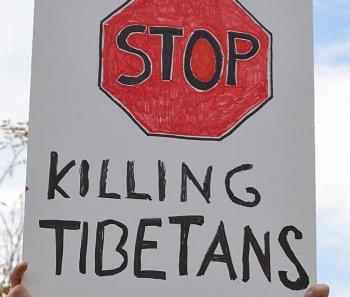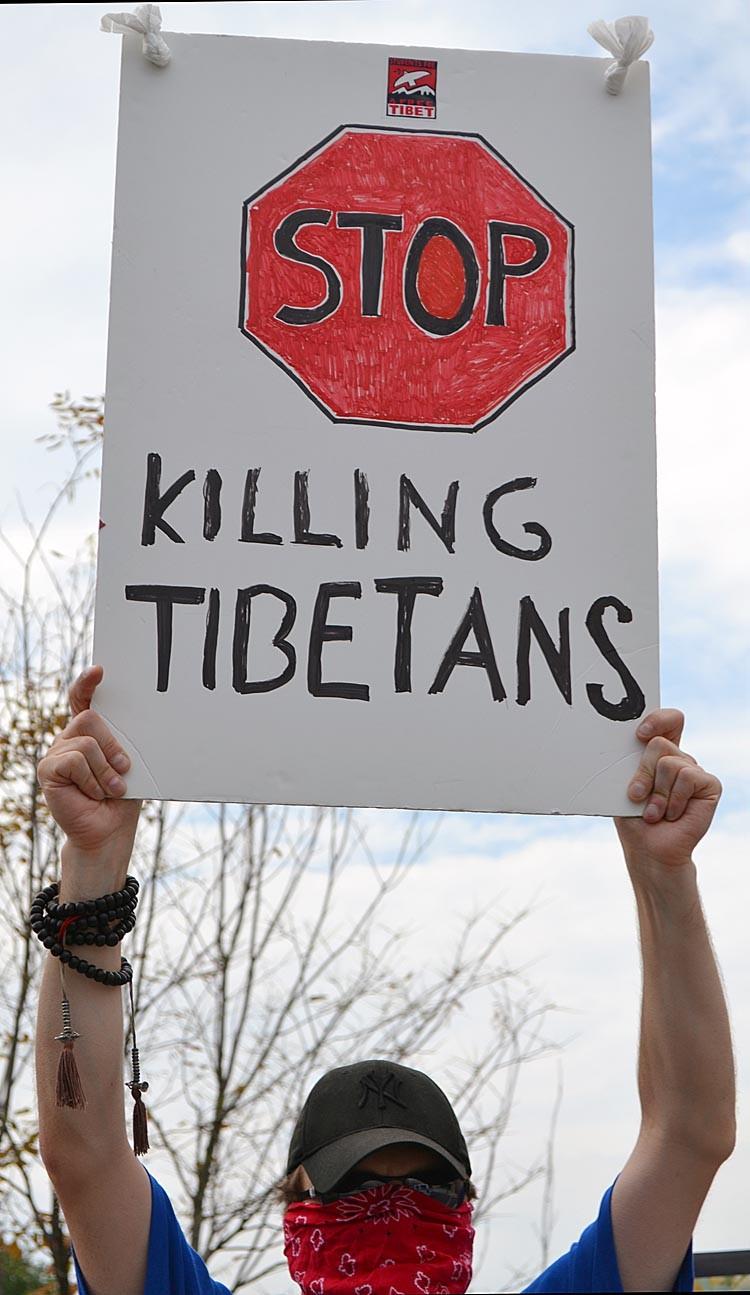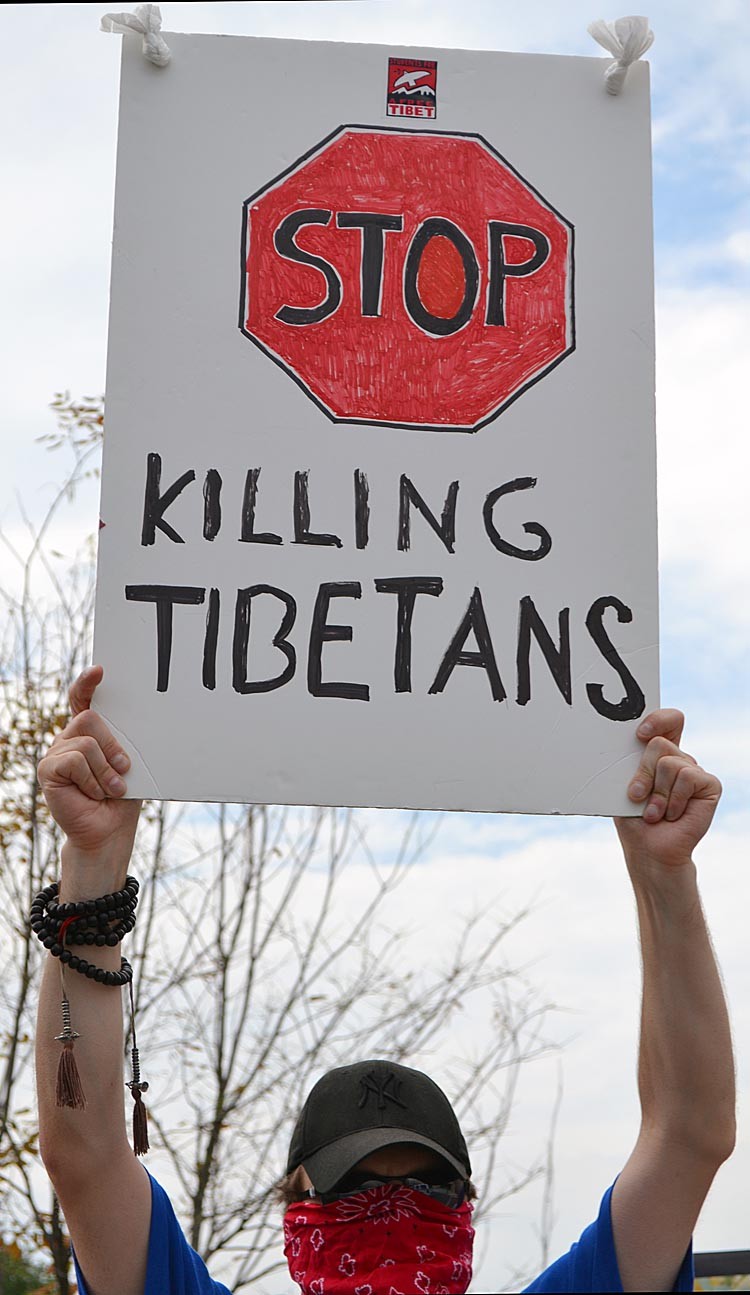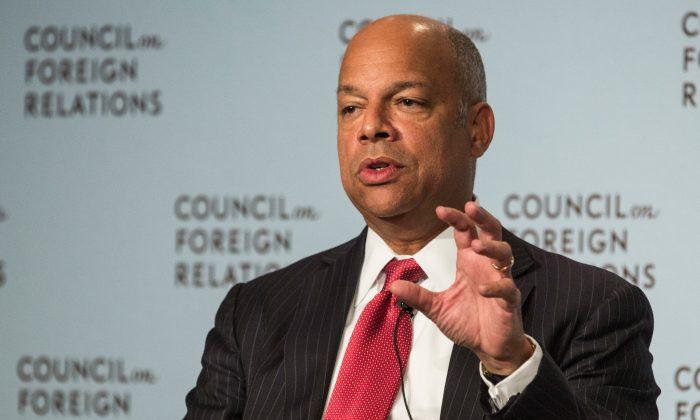On the anniversary of China’s takeover of Tibet, the Communist Party is moving to assert its grip on the region. Current Vice President Xi Jinping and a contingent of 59 cadres are in Tibet this week to “celebrate” China’s “liberation” of the region. At a ceremony Tuesday at the Potala Palace in Lhasa, Xi, who has been tapped to take over the helm of the Chinese Communist Party (CCP) in 2012 when Hu Jintao steps down, reasserted the Party’s harsh line on Tibet.
“We should fight against separatist activities by the Dalai group, rely on cadres and people of all ethnic groups, seek long-term policies, and take measures that address the root cause, and completely destroy any attempt to undermine stability in Tibet and national unity of the motherland,” said Xi, according to state mouthpiece media Xinhua.
Xi continued, extolling the infrastructure development that China has brought to Tibet over the last 60 years. He said the development “points to an irrefutable truth: Without the Chinese Communist Party, there would have been no new China, no new Tibet.”
The view is diametrically opposite to how Tibetan activists view it. “[The CCP] has repeatedly tried to convince the Tibetan people that the Communist Party saved us from the dark ages, that happiness and development have been bestowed on Tibet by the Communist Party,” says Tsering Dorje at FreeTibet.org. On the contrary, says Dorje, Tibetans have benefited little from China’s occupation of the region and have lost their freedom.
The Central Tibetan Administration (CTA), Tibet’s government-in-exile in India, says Tibetans should be the ones to judge Chinese rule of the region. Referring to recent unrest in Tibet, “the Tibetan people have made their judgment clear with their lives and limbs,” writes CTA in a press release. The legacy of Chinese rule in Tibet is one of martial law, repression and destruction of traditional Tibetan culture, says the administration.
Large sections of Tibet remain under martial law, though not in name. Recent protests against Chinese rule and general unrest in Karze and Ngaba in eastern and northeastern Tibet give a more accurate picture of Tibetans’ feelings for Chinese rule.
In the last six weeks, there have been anti-China protests in eastern Tibet, especially in the Karze region. Last week, two young women from the region, Tashi Palmo, 16, and Pema Yangzom, 19, were badly beaten after they called for reforms such as an end to Chinese rule, Tibetan independence and the return of the Dalai Lama.
“Eyewitnesses confirm that both the girls were mercilessly beaten by Chinese security personnel before they were arrested,” monk Lobsang Dhondup told exile Tibetan Web portal Phayul.com. Lobsang Dhondup is a monk from Sera Je Tehor Khamtsen in south India.
“The girls are in critical condition but Chinese authorities have denied any medical attention to the girls. We are worried for their lives,” said Dhondup.
A local source told FreeTibet.org that the Chinese military presence “is currently as bad as it was after protests in 2008.” In Lhasa, armed forces are checking identity cards and foreigners are restricted from traveling to Tibet and likely none will be admitted until late July.
In May, 1951, Tibetan delegates were forced to sign the 17-point Agreement on Measures for the Peaceful Liberation of Tibet. The agreement was supposed to guarantee China would not alter Tibet’s political system or interfere with the status, function or powers of the Dalai Lama. The treaty recognized Tibet’s distinct historical, political and cultural status.
The treaty also guaranteed Tibetans regional self-government and that their religious beliefs and customs would be respected. It promised reforms would be implemented only after consulting leading Tibetans.
But the Chinese did not keep the agreement and in 1959 Tibetans rebelled against Chinese rule. The Dalai Lama fled to India. Once there, he denounced the 17-point agreement.
“Far from carrying out the agreement [the Chinese regime] began deliberately to pursue a course of policy which was diametrically opposed to the terms and conditions which they have themselves laid down. Thus commenced a reign of terror, which finds few parallels in the history of Tibet,” the Dalai Lama wrote in 1959.






Friends Read Free